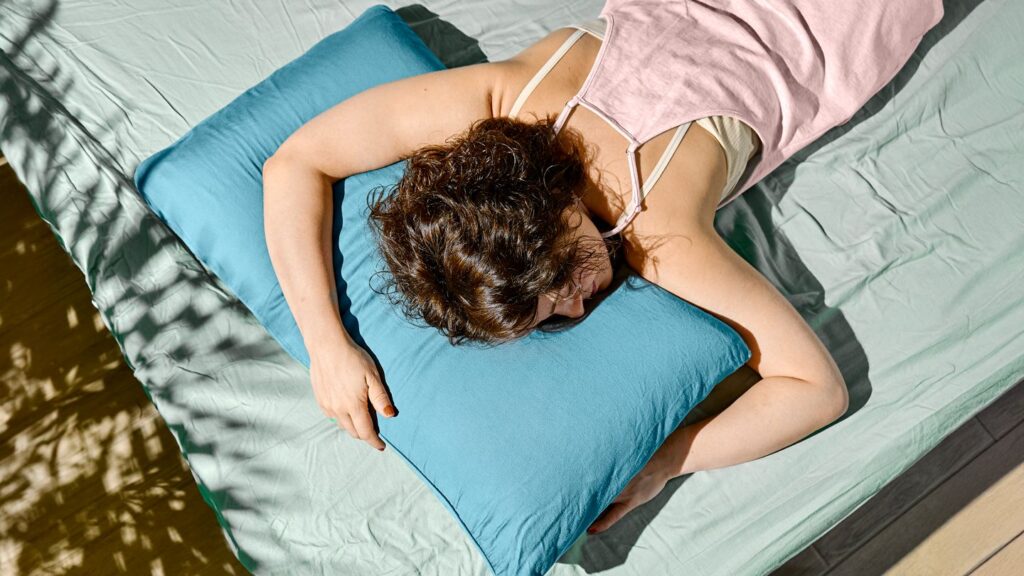If you’re experiencing uncomfortable symptoms of perimenopause and menopause there are a range of hormonal and nonhormonal treatments at your disposal. But you may be wary of taking hormones, or unwilling or unable to use any kind of medication due to underlying health conditions — and looking for options.
To help identify effective alternatives, scientists have been investigating nondrug strategies that midlife women can use to manage issues like hot flashes, anxiety, and insomnia.
A duo of new studies, for instance, provide evidence to support the benefits of two DIY techniques: masturbation and self-hypnosis.
“These are really intended for women who are afraid of hormone therapy, or don’t want to use medication,” says Lauren Streicher, MD, a clinical professor of obstetrics and gynecology at Northwestern University Feinberg School of Medicine in Chicago.
Here’s the data, plus insights from healthcare practitioners.
The Masturbation Study Had Unique Findings
Others said they coped with symptoms through:
Just 4 percent reported using prescription hormone therapy.
The researchers discovered that women who relied on self-pleasure rated their symptom relief as 4.35 on a 5-point scale compared with 3.89 to 4.06 for other lifestyle changes. Hormone therapy was ranked as 4.2.
Among the women who relied on masturbation for menopausal symptom relief, 46 percent said it improved at least one area, including:
The researchers also found that 66 percent of women said they would masturbate more if they knew it could help their menopausal symptoms, and 57 percent said they would be open to trying masturbation to relieve symptoms if their healthcare provider recommended it.
“Masturbation may play a valuable role in managing menopause symptoms, and it is important that physicians discuss the potential benefits of self-pleasure with their patients,” the researchers wrote.
Why Can Masturbation Ease Menopausal Symptoms?
The scientists didn’t investigate why masturbation is effective at helping manage menopause symptoms. Cynthia Graham, PhD, study coauthor, senior scientist, and professor of gender studies at Indiana University’s Kinsey Institute, notes that more research is needed to explore this question.
She calls the study “exploratory pilot research,” noting that the women who volunteered to participate were likely sex-positive and open about their sexuality.
Dr. Graham also says that self-pleasure could increase levels of endorphins, feel-good hormones in the body, and decrease levels of the stress hormone cortisol, which may ultimately help women feel that they can better manage their menopause symptoms.
Self-Hypnosis Reduced Hot Flashes by Over 50 Percent
In the hypnosis sessions, women listened to a 20-minute audio recording in which they received suggestions to help them relax as well as mental imagery. “That included walking down a mountain path on a snowy day, feeling a cool breeze, and feeling snowflakes as they walk along this path,” says Gary Elkins, PhD, lead study author, professor of psychology and neuroscience and director of the Mind-Body Medicine Research Laboratory at Baylor University in Waco, Texas. (Women can listen to the same recordings by downloading the Evia app.)
After six weeks, the researchers found that individuals in the self-hypnosis group had about a 53 percent reduction in hot flash frequency and intensity.
During a three-month follow-up, the researchers discovered that hot flashes in this group were reduced by about 61 percent compared with a roughly 41 percent decrease in the “sham” (control) group.
Why Could Self-Hypnosis Help With Menopause Symptoms?
She compares the impact of hypnosis to cognitive behavioral therapy. “We know that cognitive behavioral therapy takes you out of the moment of the hot flash as it’s happening so you’re not as aware of it,” she says.
“But that doesn’t mean that the hot flash isn’t happening — it’s just that you’re not as aware of it.”
Mary Jane Minkin, MD, a clinical professor of obstetrics and gynecology and reproductive sciences at Yale School of Medicine in New Haven, Connecticut, says she’s “not surprised” by the findings. This impact could be due to hypnosis having an impact on the hypothalamus, which is an area of the brain involved in temperature regulation, she says. “Much of our temperature-sensing is centered hypothalamically,” Dr. Minkin adds.
The goal of the self-hypnosis sessions is to help women regulate their core body temperature, Dr. Elkins says ”Hot flashes are a result of dysregulation of the core body temperature,” he points out.
Treatment for Menopausal Symptoms Is Not One-Size-Fits-All
Ultimately the decision about what perimenopause and menopause treatment to pursue is the one that feels right to you.
With masturbation, for instance, “Not all women will take this up if it’s suggested to them,” Graham says.
The intensity and frequency of symptoms should also help drive treatment choices. “Cognitive behavioral therapy and hypnosis are not going to help your hot flashes as much as pharmaceutical stuff,” Streicher says. “It all comes back to how severe your hot flashes are. If they’re mild and you want to do cognitive behavioral therapy and hypnosis, great. If they’re severe, you may want to consider hormonal therapy.”

